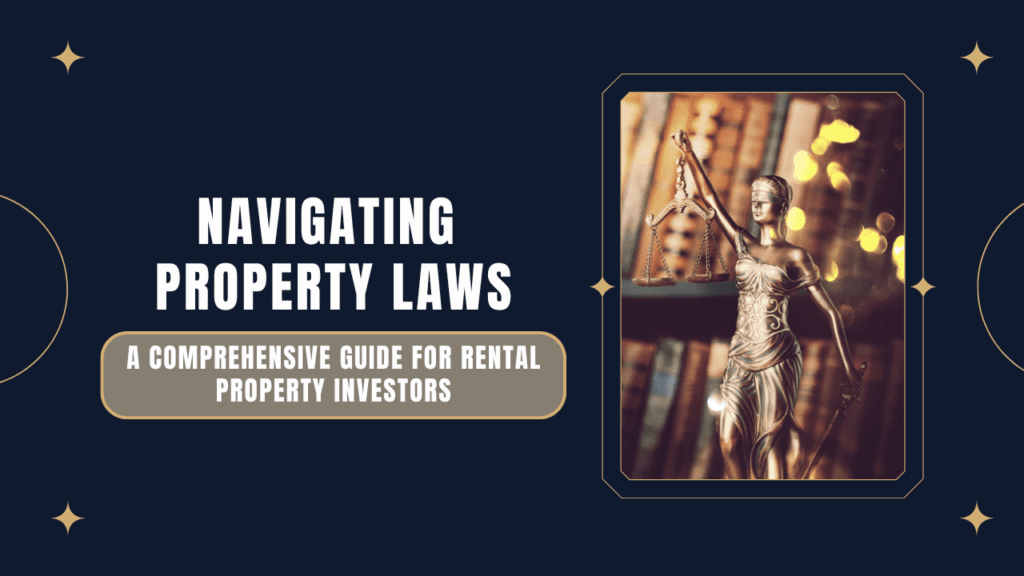
Being a landlord in Arlington and throughout Northern Virginia is riskier than ever, and that’s partly due to the long list of laws and regulations that must be followed when you’re renting out a home to a tenant. You have to follow fair housing laws, understand security deposit requirements, and learn the eviction process. You need a strong lease agreement that’s legally enforceable and legally compliant. There’s the Landlord Tenant Act that needs your acute attention.
There’s a lot of information out there, but it’s still easy to make a legal mistake. Unfortunately, those legal mistakes are often expensive. When it comes to navigating state laws, you either need to know them inside and out or you need to lean on a Northern Virginia property management company who can keep you and your property in compliance.
In Virginia, your rights and responsibilities and your tenant’s rights and responsibilities are defined by state law, and violating them can result in legal problems and potential financial penalties.
Let’s take a look at some of the key aspects of Virginia’s rental property laws to help you comply with the state regulations and protect your property, your tenants, and yourself.
Get to Know the Virginia Landlord Tenant Act
Virginia’s Landlord Tenant Act lays out key provisions that landlords must adhere to when renting properties. This act covers everything, such as:
- Security deposits
- Evictions
- Lease agreement
- Maintenance and habitability standards
If you’re going to rent out a property in Arlington or anywhere in Virginia, you need to familiarize yourself with these laws to avoid potential legal problems and pitfalls. For example, Virginia law requires landlords to place tenant security deposits in a separate escrow account. Are you doing that, or are your tenant’s funds mingling with your own?
The Landlord Tenant Act also requires you to maintain your rental property and make necessary repairs to provide habitable living conditions at all times.
Understand Fair Housing Laws
The federal Fair Housing Act and the Virginia Fair Housing Act will have impacts on how you market your property, screen your tenants, and treat everyone during their residencies. These laws prohibit discrimination on the basis of race, color, national origin, religion, gender, sexual orientation, and physical or mental disability. Landlords who violate these acts could face federal or state fines, civil suits, and damages.
You might feel pretty safe when it comes to fair housing; you’d never intentionally discriminate against someone. The law is broad, however, and if you mention a specific type of tenant in your marketing materials or if you screen one tenant differently than another tenant, you could be looking at a fair housing claim.
Make sure your listing focuses on the attributes of the property only, and not what kind of tenant the home would be suitable for. Do not mention that it’s “perfect for a single professional” or “close to churches” or “not ideal for children.” When you’re screening, make sure you’re using a set of standard rental criteria and holding every applicant to the same standards. This will protect you and keep your process completely objective.
Security Deposits in Virginia
A lot of legal mistakes happen around the security deposit collection and return.
As we mentioned, you have to hold the security deposit in a separate account.
There are also limits to what you can collect as a security deposit. You cannot collect more than the equivalent of two months’ rent in Virginia. If you’re renting out a home for $2,500, your maximum security deposit is $5,000.
After your tenant moves out, you have 45 days to return the security deposit to the tenant’s forwarding address. If you’re withholding any part of the deposit, you’ll want to send whatever remains of the deposit as well as an itemized statement of what you withheld and why.
Remember what you can and cannot deduct from the deposit. In Virginia, you are allowed to deduct for:
- Unpaid rent
- Unpaid utility bills
- Property damage
You cannot charge the deposit for general wear and tear that’s left behind. This is part of your responsibility as a landlord; those tiny nail holes from where pictures were hung and the faded paint are your responsibility. You’ll pay for them as part of the property turnover.
Damage might be broken windows, large scratches in walls or floors, or appliances that have been misused and no longer work. Make sure you carefully document the condition of your property before the tenant moves in and after the tenant moves out. This will help you determine what qualifies as wear and tear and what qualifies as damage.
Follow Eviction Law When Removing an Arlington Tenant
When you carefully screen tenants and enforce your lease agreement, eviction should be rare. But, you need to understand the process in case the relationship does not work out and you need to evict.
Virginia law provides the framework for a legal eviction process. To evict a tenant, a landlord must adhere to the legal process, which includes giving the tenant a written notice to vacate the property. If the tenant does not leave voluntarily, landlords must seek legal eviction through the Virginia courts. Do not take matters into your own hands; you cannot change the locks, turn off the utilities, or show up at the house to confront your tenant.
Protect Yourself Legally with a Strong Lease Agreement
Virginia law requires you to provide a written rental agreement to tenants. Rental agreements must outline terms like rent, security deposits, and lease durations. If you don’t provide a written lease agreement, it’s harder to enforce legal action if a tenant violates your agreement. In Virginia, also you are required to give a 30 days notice before increasing rent, and your lease agreement should reflect that requirement.
Virginia’s rental property laws can be challenging to keep up with. You must familiarize yourself with Virginia’s rental laws to avoid legal problems, complaints, and hefty fines. Ignoring or circumventing rental laws can potentially put you and your tenants at considerable risk.
If you need some help staying up to date, please contact us at Comfort Property Management because we understand and comply with all state, federal, and local laws.
 Comfort Property Management leases, manages, and maintains investment properties throughout Northern Virginia, in Arlington, Alexandria, Fairfax, Falls Church, McLean, Ashburn, Sterling, Springfield, Reston, Chantilly, Manassas, Centreville, and Herndon.
Comfort Property Management leases, manages, and maintains investment properties throughout Northern Virginia, in Arlington, Alexandria, Fairfax, Falls Church, McLean, Ashburn, Sterling, Springfield, Reston, Chantilly, Manassas, Centreville, and Herndon.
